I was multi-tasking as per usual when I heard a ping and these words caught my eye:
What to do when positive thinking doesn’t work.
I’m a positive thinker by nature but 2016 has been a hella hard year for many of us from personal challenges to the exceptional number of game changing artists lost this year.
I leaned in. It was an invitation to a live Q&A on Facebook Live with psychotherapist Emily Roberts. If you don’t know Emily, she’s “The Guidance Girl” and the author of Express Yourself: A Teen Girl’s Guide To Speaking Up and Being Who You Are as well as a popular speaker, television contributor and – this is key for women of all ages – a confidence expert.
I was dropping my daughter at college (life transitions have been one of this year’s challenges) and unable to attend but the words stayed with me.
I was glad someone with credibility was saying this out loud. Because I’ve been there, maybe you have too.
Since I missed the FB Live I sent Emily an email with a bunch of questions and she was kind enough to answer them:
BBA: I was struck by your posts on Facebook and Instagram, What To Do When Positive Thinking Doesn’t Work (watch the video here) and first want to say thank you! for starting this conversation. What prompted you to address the topic?
EMILY: We are bombarded with influencers who imply that it’s easy to “just think positive” or to “change your thoughts” but that isn’t possible for so many of us, especially on tough days. I find it’s almost invalidating the human condition as we are supposed to feel emotions, not dismiss them. Biologically speaking emotions save our lives and by suppressing the reality that somedays you are overwhelmed, shit happens or people hurt/infuriate you, you invalidate yourself.
That week (of the post) in particular I did everything I could to feel positive and gain some control over my thoughts and deadlines, but it wasn’t working as well as I wanted it to. I meditated, worked out, read, watched things that inspired me, rested, worked, deliberately didn’t check emails after 8 or 9 pm and still I was a negative Nancy. I was frustrated with myself and wanted to be more positive it wasn’t coming as fast as I wanted it to. The truth is what I really needed was patience and self-care, acknowledge that the things I was trying to accomplish were challenging and by identifying the feeling (frustrated and burnt out) I was able to actually problem solve. I wound up taking a much needed break, meeting up with a good friend, asking a colleague for some help on a project and started to feel a remarkable difference. By accepting my emotions I actually became a more positive person (and got some stuff off my plate).
BBA: What do you mean exactly?
EMILY: I would consider myself a positive person on most days. I feel I’m responsible for the energy I put out there but also not in control of what comes my way, at least not all the time. Mean people can get under my skin, situations can be out of my control and it’s okay to have moments of WTF thinking. However, I know that if I can be kind and speak to myself in a more validating and positive way it will be healthier to myself and other people. So I try to be kind, look at the world with rose colored glasses and see the lotus in the muck and mud right–when I can. But we all struggle with stuff outside our control and there are so many reasons we may not be able to accept that the future may be brighter or that we will learn and grow from whatever the current icky situation is.
I genuinely believe that most crappy situations are assignments, but when I have like 12 assignments at once, it can be hard to look at it in a productive or mindful way. The point is the more we accept that we are feeling ____ emotion the more likely we can do something about it or validate ourselves. That breeds positivity.
Also there are many examples of ways in which we sabotage our positive mindset. We watch the news first thing in the morning or scroll through social media putting our mind in a more fearful state– looking for the negatives our brains become fixated on what’s wrong rather than what’s right and what we have control over. We compare ourselves to altered images and filtered people who get paid to promote products they don’t use or people who post the one good picture of themselves or their family after photoshopping or taking 200 that were real and beautiful but that showed a side of them that was “imperfect” … I’m all about being real these days as I feel that is more empowering and authentic as well as helpful. We do so many things each day that mess with our confidence and reduce our power to think positive.
BBA: Do you have examples??
Say you used to be productive as hell and all the sudden you’ve got writers block (AKA THIS IS ME). Trying to do what used to work isn’t working its making it harder. Then you get depleted, burned out and hyper-focused on the outcome or deadline that is coming up. It isn’t enough to say “I’m awesome I wrote a book.” Because in that moment I feel like I can’t write anything. What’s more effective is stopping what you’re doing and recognize IT ISN’T WORKING. That gives you an opportunity to move forward in a different direction instead of cussing at your computer and filling your mind with negative thoughts.
Say you are stuck in traffic and late for a meeting, a super important one, saying “it will work out” or “if it’s not this it’s something better” is ideal but in that moment you have to radically accept that the car isn’t moving and you may be late. That gives you agency to do something proactive to keep your life from feeling out of control. This is also acceptance that this situation makes you feel bad so you want to change it. Perhaps you jump out of the cab and walk or grab a subway. You can’t do that when your pushing yourself to think positive about the situation.
BBA: I am guilty like a lot of people of being well-intentioned with positivity and platitudes but sometimes not helpful and maybe a little harmful…What are some strategies for people.
EMILY: I like your posts! If your intentions are to help others or put out positive content in the world you are in the clear. I value people and pages that make me feel happy. The problem is more on an interpersonal level in communication and often done unintentionally.
- Recognize when you are quick to problem solve or give advice when someone is expressing themselves. A perfect example is when a parent will tell their child “It will get better” and hand them a cookie. Really, how do you know? A much better way to deal with someone’s feelings, even if it makes you super uncomfortable is to validate the situation. “I’m so sorry that you had a bad day.” Don’t fix it if they don’t ask for it.
- Be aware when you are uncomfortable and accidentally dismiss someone’s real feelings because you are uncomfortable. The number one thing people can do is listen and ask questions. “Rough day right? Sorry man is there anything I can do” helps someone feel heard and important. instead of “At least _____ didn’t happen.” or “Look at the bright side….” If they could they would, ya know.
BBA: Who needs help when Positivity is not enough?
EMILY: All of us. We all have crummy days or moments and validating our emotions and the emotions of others is imperative. If we think we are supposed to be happy all the time we set the bar too high and that is damaging to many people. “Why can’t I be like her, she’s so perfect…” BS let’s get real. She has bad days and tragic sh*t happen to. It allows us to heal and find comfort when we express our true selves and emotions. Some days it is really hard to get out of bed and even brush your teeth, I’ve been there too. You never know what life will throw your way so even the most positive people can be a bit fragile at times. That is the human condition and that is perfectly healthy. If someone is positive all the time and optimistic I want to know what meds they are on 😉
Find Emily on her website, The Guidance Girl
Find Emily’s “mostly positive but sometimes not” social media:
Twitter @GuidanceGirlEm
Facebook GuidanceGirlEm
Instagram @GuidanceGirlEm
YouTube The Guidance Girl



